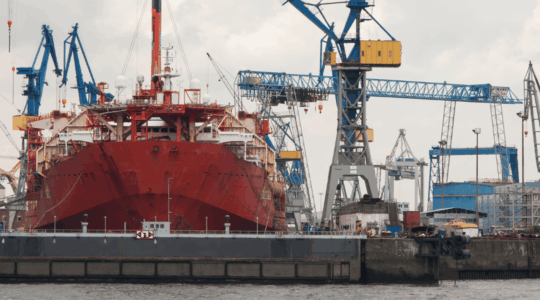Marine
Navigating the Changing Seas: Adapting to Regulatory Changes in the Maritime Industry
As the regulatory landscape shifts, vessel operators must stay informed and take a proactive approach to compliance and risk management.
February 19, 2025
The maritime industry is undergoing significant regulatory changes. For vessel owners, operators and risk managers, understanding these evolving laws is critical to maintaining compliance, reducing liability and protecting financial interests.
Among the most pressing regulatory concerns is the Jones Act, a law that has defined domestic maritime commerce for over a century. With increased enforcement, evolving interpretations and ongoing reform discussions, businesses must take a proactive approach to risk management to avoid costly fines, operational delays and potential safety hazards.
Understanding the Jones Act and Its Impact on Marine Operators
The Jones Act (Merchant Marine Act of 1920) governs the transportation of goods between U.S. ports. It requires vessels engaged in this trade to be U.S.-built, U.S.-owned, U.S.-flagged and crewed primarily by U.S. citizens or permanent residents. This law was designed to protect national security, promote domestic shipbuilding and ensure a reliable U.S. merchant fleet. However, compliance with its strict requirements can create operational and financial challenges for vessel owners and operators.
Crew members under the Jones Act include individuals who contribute to a vessel's mission and function, such as captains, engineers, deckhands and other essential crew members. Any violation of crewing regulations can result in heavy fines, legal action and disruptions to business operations.
The Importance of Safety and Risk Management
Jones Act compliance extends beyond regulatory requirements—it directly impacts crew safety, vessel seaworthiness and financial risk. Vessel owners can be held liable for injuries if a vessel is deemed unseaworthy or if crew safety protocols are inadequate. Ensuring proper maintenance, crew training and adherence to workplace safety standards is essential to reducing liability exposure.
In addition to vessel safety, regulatory compliance requires a strong risk management strategy. Conducting regular audits to ensure vessel ownership and staffing meet Jones Act requirements is key to avoiding violations. Reviewing charter agreements and crewing contracts can prevent inadvertent liability risks. Securing comprehensive marine insurance, including coverage for Jones Act crew liability, Longshore & Harbor Workers’ Compensation Act claims and excess liability, helps operators manage financial exposure.
Increased Jones Act Enforcement
U.S. Customs and Border Protection has tightened enforcement of Jones Act violations, particularly in offshore wind energy, marine cargo transport and oil and gas operations. As authorities crack down on unauthorized foreign-flagged vessels and improper crewing arrangements, non-compliant operators face heavy fines, increased insurance costs and legal disputes.
Staying ahead of enforcement trends through compliance audits, insurance planning and legal consultations is critical for avoiding unnecessary risks. With the expansion of offshore wind projects and increased scrutiny on vessel operations, ensuring full compliance has never been more important.
The Future of the Jones Act
While some lawmakers are advocating for reforms to ease restrictions in certain sectors, others are pushing for even stronger enforcement measures to protect U.S. shipbuilding and maritime jobs. Potential changes include exemptions for offshore wind projects, stronger penalties for violations and tax incentives to modernize U.S. fleets.
As the regulatory landscape continues to shift, vessel operators must stay informed and take a proactive approach to compliance and risk management.
How Your Business Can Stay Ahead
The maritime industry is facing a wave of regulatory changes, and staying compliant with the Jones Act is more important than ever. The best way to protect your business is through proactive risk management, comprehensive insurance coverage and ongoing compliance reviews.
At Hylant, we specialize in marine insurance solutions tailored for vessel operators, offshore businesses and marine contractors. We provide coverage for Jones Act crew liability, Longshore & Harbor Workers’ Compensation Act claims, hull and machinery, pollution liability and excess liability.
Don’t wait for enforcement actions to disrupt your operations. Contact us today to review your marine insurance needs and ensure full Jones Act compliance.
Related Reading: Pollution Risk Management for U.S. Shipyards and Vessel Owners
The above information does not constitute advice. Always contact your insurance broker or trusted advisor for insurance-related questions.


